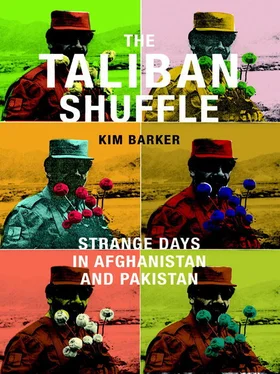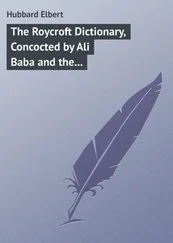Eventually, the seven main mujahedin groups and their splinters, militias run by powerful warlords like Pacha Khan, pushed out the Soviets in 1989. Peace did not follow. After years of squabbling and a brutal civil war among the militias, the Taliban and its harsh version of Islamic rule arrived in Kabul in 1996. Farouq and his family were all ethnic Pashtuns, like the Taliban, even if in their hearts they were nothing like the Taliban. But they had no choice; like most other Afghans, they kept their heads down and followed the rules. Farouq’s female relatives wore blue burqas that turned them into ghosts whenever they left the house. Farouq grew out his beard, although he occasionally got into trouble because his beard just wouldn’t grow to the proper length to signify that he was a good Muslim—considered a fistful of beard.
As the Taliban regime spread its reach, Farouq prepared for his future. He became a doctor. He learned anatomy by digging up skeletons in graveyards—the medical students had no other choice. They practiced surgery on the Taliban, repairing wounds earned fighting the militia leftovers now outside the capital, which had coalesced into a group called the Northern Alliance, dominated by ethnic Tajiks from the Panjshir Valley, just north of Kabul.
After living through all this plus the fall of the Taliban regime, Farouq behaved much older than I did. He seemed forty, even though he was only twenty-six. He took care of at least ten relatives, from nieces and nephews to his parents and a disabled sister. Farouq hadn’t planned to go into journalism, or to become a “fixer,” a foreign journalist’s paid best friend, the local who interpreted, guided, and set up interviews. He wanted to be a surgeon. But he would have earned a paltry $100 a month as a doctor. With us, he made $50 a day. All the young English-speaking doctors and medical students had started working with foreign journalists, who probably single-handedly eliminated a generation of doctors in Afghanistan.
Luckily, Farouq, a barrel-chested former weightlifter with a mustache and thick black hair, was a natural journalist. He was intrepid and resourceful. He was eager, probably because he was single, and a single young Afghan man had little in the way of entertainment. It’s not like Farouq could date or go to a bar. Kabul had no bars or dates, except for the edible kind. Farouq was also connected to the entire country—related to half, able to convince the other half to talk.
I told Farouq about my own life—kind of. I said I wanted to be a foreign correspondent—kind of. And at thirty-two, I wanted to get married to my serious boyfriend—kind of. Or maybe I wanted to do both. I was still working it out.
At one point, we wandered through the streets of Kabul—cold, gritty, fecal—to try to get some air. Afghans stopped us.
“What is she doing here?” more than one Afghan asked. “Didn’t all the foreigners go to Iraq?”
I figured that could be a story, so we interviewed Afghans near the top of TV Mountain, so named because the TV stations had transmitters on top. Kabul was a very literal city: Butcher Street was where the butchers were, where slabs of questionable meat hung, covered with flies. Chicken Street was where chickens used to be sold, but Chicken Street had evolved into the tourist market, where in the 1960s hippies shopped for fur jackets, silver trinkets, and carpets. The market had tentatively reopened after the Taliban fled, selling the same fur jackets and silver trinkets and carpets from thirty years earlier, only to foreign aid workers and soldiers and journalists instead of hippies.
On TV Mountain, the Afghans almost spat out their rage about feeling abandoned. “Believe me—the Americans lost in Afghanistan as soon as they left for Iraq,” one man said. Or maybe he said “believe me”—I was learning that this phrase was one of Farouq’s trademarks, along with “I’m telling you.” I just smiled and nodded. Afghans were as sensitive as a teenage girl about the civil war that happened after the Soviets fled in the late 1980s, when the Americans left the last time around. I wrote a story, but the newspaper had no space. The indignities piled up. My computer keyboard started failing, letter by letter. My satellite phone was broken, and I had no way to get online except for Kabul’s Internet cafés. I had to fudge receipts for a new Thuraya satellite phone because we weren’t supposed to buy new equipment—all the money was being spent on Iraq. I was starting to really hate that war.
Like any journalist trying to push her way into the newspaper, I figured more action was the answer. Once again, Farouq and I hit the road. We flew to Kandahar, the onetime Taliban stronghold in the south and the second-largest city in Afghanistan, near where the fighting was the worst. We walked onto the tarmac and found our Kandahar driver near a statue that resembled a giant soccer ball. He took us immediately to a boys’ school that had just been burned down by members of the Taliban, who destroyed cookies sent by India and called the headmaster “son of Bush.” Then, with the sun sinking and our driver panicking about me wearing glasses in a dicey neighborhood, as glasses were a clear sign I was a foreigner, we drove to our hotel, where my bathroom had been defiled by someone days earlier.
“God, I could use a drink,” I muttered, staring at the petrified mess. As far as I knew, Afghanistan was a dry country. I hadn’t even tried to find alcohol.
We ate some kebabs. I worked on a story. And then, late at night, I heard a knock at my door. I hesitated to open it, even if it was Farouq. Like every female journalist here, I had suffered problems with overly friendly fixers, mainly in Pakistan, where one translator had pouted for three days because I refused to share a hotel room and a drink or four with him. I opened the door a few inches. It was Farouq, and he was bearing a gift—a bottle of vodka from Uzbekistan.
“I thought you might want this,” he said, handing it through the door. “Have a good night.”
Then he left, to go tell jokes to Afghan friends in a nearby room or to watch a Mr. Bean movie, both common ways for young men to pass the time here. The vodka was practically undrinkable, but at this point, it was clear—Farouq could do anything, and he was just the right kind of friendly.
The next day, he even found me an Internet café, the first to open in Kandahar. This was a revelation—the Taliban had banned the Internet and any depictions of people, whether in photographs or movies. For the uncensored Internet to be available, especially in Kandahar, represented a real change, definite progress. The café was in a house that looked like a cross between a bordello and a bomb shelter, with thick velvety curtains protecting the privacy of every so-called “cabana” and taped Xs on the windows protecting the customers from any explosions outside. I wondered what the young men of Kandahar spent their time looking at, so Farouq and I hopped from computer to computer, each cobbled together from old spare parts and, yes, duct tape, checking the lists of favorite websites and the recent surfing history.
“Most of them are about sex,” Farouq whispered.
“Most of them are about sex with animals or boys,” I corrected, clicking on ultradonkey.com before reaching for my hand sanitizer.
Apparently, freedom had arrived in the south. For now.
Iflew home to Chicago in late April 2003, just before Bush declared victory in Iraq, and all the other fledgling correspondents also returned to their regular metro reporting gigs. But I could not stay long in the United States—I was already hooked on warlords and bad vodka, my new version of a hot date. Sure, I was in my early thirties. I had a serious boyfriend, an aspiring screenwriter named Chris, and I was on the marriage and baby track. I had good friends and a comfortable life in Chicago. I rode my bike to work, I listened to NPR, I played softball. But my world felt small there, a comfortable habit, an old shoe. Life in Chicago seemed gray compared to the Technicolor jujitsu of Afghanistan. All the other stuff, the marriage and the babies, paled in comparison, paled to the point that they didn’t even seem to matter.
Читать дальше











